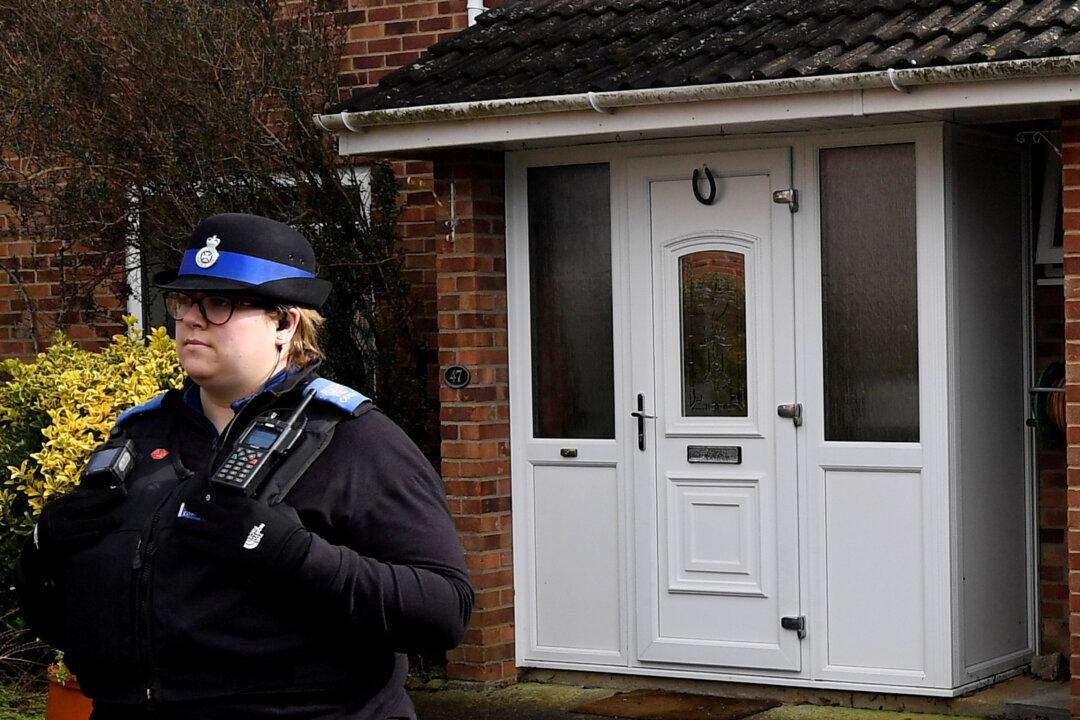LONDON—Russian former double agent Sergei Skripal and his daughter were poisoned with a nerve toxin that had been left on the front door of their home in England, British counter-terrorism police said.
After the first known use of a military-grade nerve agent on European soil since World War Two, Britain blamed Russian President Vladimir Putin for the attempted assassination, and the West has expelled around 130 Russian diplomats.





